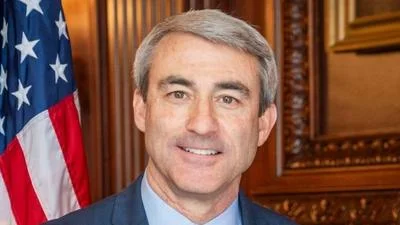David Olson, MBA, MHA, FACHE Chief Business Development Officer | ThedaCare Regional Medical Center-Appleton
David Olson, MBA, MHA, FACHE Chief Business Development Officer | ThedaCare Regional Medical Center-Appleton
Studies indicate a rise in fatal heart attacks during winter holidays, with December 25, Christmas Day, showing the highest number of cardiac deaths in the United States, according to research by the American Heart Association (AHA). In Sweden, heart attack rates increase by 37% on Christmas Eve and 15% overall during winter holidays, as reported in a study published by the British Medical Journal.
"While we don’t know exactly why we see such an increase during the winter holidays, several factors could contribute," said Dr. Abdulmohsin Ahmadjee, a cardiologist with ThedaCare Cardiovascular Care. "Obviously, stress and overindulgence can have an impact."
Colder weather is another contributing factor as it causes blood vessels to constrict, reducing blood flow and raising blood pressure. The heart works harder to maintain body temperature during frigid conditions.
The holiday season often involves strenuous physical activities like shoveling snow or carrying heavy packages. This can be risky for those not in optimal physical condition.
One significant factor is the busy nature of the holiday season. "People may put off care or ignore key warning signs of cardiovascular distress when they have too much to do," Dr. Ahmadjee explained. "Never hesitate to seek help if you’re having concerning symptoms."
The AHA advises vigilance for symptoms such as chest pain, which can feel like squeezing or uncomfortable pressure and may signal a heart attack if persistent. Women's symptoms may differ slightly from men's but often include additional signs like unusual fatigue or sleeplessness weeks before an attack.
To prevent heart attacks, maintaining healthy habits is crucial. Recommendations include reducing stress by delegating tasks or eliminating events when possible and getting seven to nine hours of sleep per night to regulate blood pressure and cholesterol levels.
Limiting alcohol intake is advised; men should consume no more than two drinks per day while women and individuals over age 65 should limit themselves to one drink daily. Adhering to prescribed medication schedules despite holiday distractions is also essential.
Eating a balanced diet focusing on vegetables and fruits while enjoying treats moderately can support heart health. Integrating exercise into daily routines—such as brisk walking totaling at least 150 minutes weekly—can help maintain fitness levels.
Regular health checkups are encouraged alongside managing conditions that contribute to heart disease like high cholesterol or diabetes. Smoking cessation significantly reduces heart attack risk within just one year of quitting.
Maintaining a healthy weight through medical advice if necessary can further reduce risks associated with obesity-related complications.






 Alerts Sign-up
Alerts Sign-up